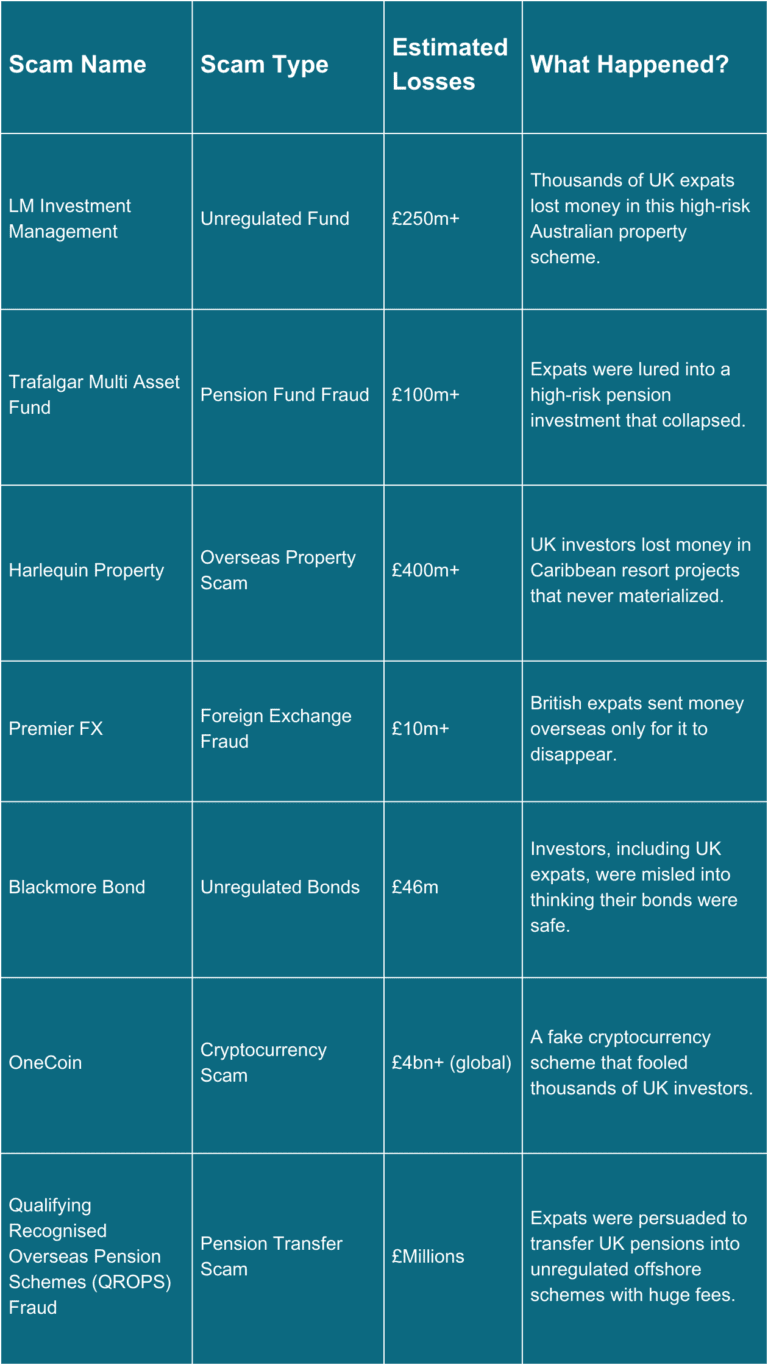
When Bad Advice Costs Everything: How British Expats Can Learn From an England Manager
Bad expat financial advice
Sven-Göran Eriksson, the renowned football manager who led England from 2001 to 2006, amassed significant wealth throughout his illustrious career.
However, a series of poor financial decisions and misplaced trust in the wrong advisers led to the depletion of his fortune, leaving him £3.7 million in debt at the time of his passing in August 2024.
Eriksson’s financial downfall is not just a cautionary tale for footballers.
It’s a lesson for anyone—especially British expats – who place their trust in unqualified or unscrupulous financial advisers.
The Downfall of a Football Icon
Eriksson’s troubles began when he entrusted his finances to Samir Khan, a financial adviser introduced to him in 2004.
By 2007, Khan had full control over Eriksson’s financial affairs.
What Eriksson didn’t know was that Khan was making high-risk, speculative investments, including dubious property deals and personal expenditures, ultimately defrauding him of £10 million.
Despite legal action and a court victory, Eriksson never recovered the lost funds, as Khan was declared bankrupt.
At the time of his death, he owed £7.25 million to HM Revenue and Customs (HMRC) in the UK, with total debts of £8.64 million.
His assets, valued at £4.8 million, were insufficient to cover these liabilities, leaving his estate with a significant deficit.
A Cautionary Tale for British Expats
Eriksson’s story is not unique.
Many British expats face similar financial ruin after trusting the wrong advisers.
Moving abroad can create financial complexity—cross-border taxation, pension transfers, estate planning, and investing in unfamiliar markets.
Many expats turn to financial advisers for guidance, only to fall victim to salespeople masquerading as professionals.
The Dangers of Unregulated “Advisers” Abroad
Unlike the UK, where financial advice is strictly regulated by the Financial Conduct Authority (FCA), many overseas jurisdictions allow anyone to call themselves a “financial adviser.”
This has created a breeding ground for unqualified and unscrupulous salespeople pushing high-commission investment schemes that often lead to financial disaster.
Common red flags include:
- Unqualified “advisers” targeting British expats – Many operate in Spain, Portugal, France, Dubai, and Asia, often with no financial qualifications.
- Overseas pension and investment scams – Expats are often misled into transferring their pensions into high-risk, unregulated offshore schemes (e.g., QROPS fraud).
- Complex tax avoidance structures – Some advisers push tax schemes that promise huge savings but ultimately collapse, leaving clients exposed to massive tax bills.
- Hidden commissions and high-fee investment products – Many expat financial advisers earn commissions of 5–10% on financial products, which can drain an investor’s wealth over time.
What Makes Expats Susceptible?
Expats often lack local financial knowledge, making them more vulnerable to bad advice.
- Financial complexity abroad – Many expats don’t fully understand tax laws, pension transfers, or investment rules in their new country.
- The illusion of credibility – Many scammers work for firms that appear professional, using glossy brochures and fancy websites.
- A desire to ‘outsource’ financial decisions – Expats are often busy with new lives abroad and may blindly trust advisers without doing due diligence.
Well-Known Investment Scams Targeting British Expats
Here’s a look at some of the worst investment scams that have cost British expats millions:

How to Protect Your Wealth
To safeguard yourself from financial disaster, follow these steps:
1. Verify Your Adviser’s Credentials
▪️ Ask for proof of qualifications—Chartered Financial Planner status is the gold standard.
2. Avoid High-Commission Investments
▪️ Be wary of offshore bonds, structured notes, and complex pension transfers—many have excessive fees.
▪️ If an adviser gets paid a commission instead of charging a clear fee, that’s a red flag.
3. Question Unrealistic Promises
▪️ If something sounds too good to be true, it probably is.
▪️ Any adviser promising “guaranteed” high returns is lying.
4. Read Everything Before Signing
▪️ Never sign investment documents you don’t fully understand.
▪️ Seek independent advice before making large financial decisions.
Final Thoughts
British expats are prime targets for financial scams and bad advice.
The right financial adviser can help you build and protect wealth—but the wrong one can destroy it overnight.
Before trusting anyone with your money, do your due diligence.
❓ Frequently Asked Questions
Why are British expats often targeted by financial scammers?
British expats are seen as prime targets due to their potentially high net worth, lack of familiarity with local financial regulations, and the complexity of managing cross-border assets. Many are also seeking help with pension transfers or tax planning and may mistakenly trust unqualified advisers.
How can I verify if a financial adviser is legitimate?
Always ask for proof of qualifications. In the UK, the Chartered Financial Planner designation is a gold standard. Also, check if the adviser is authorised by the Financial Conduct Authority (FCA) or has equivalent regulation in their jurisdiction.
What are common red flags when dealing with financial advisers abroad?
Red flags include advisers pushing high-commission products like offshore bonds, promising guaranteed returns, avoiding transparency on fees, or lacking recognised qualifications. Be especially cautious of advisers operating without regulatory oversight.
What should I do if I suspect I’ve received bad financial advice?
Stop any further transactions immediately and gather documentation. Consult a properly regulated financial adviser for a second opinion, and report the issue to relevant authorities such as the FCA or your local financial regulator.
Can British expats still get access to regulated financial advice?
Yes. Some advisers, like those with UK credentials who operate internationally, specialise in helping British expats with cross-border financial planning while maintaining professional regulation and ethical standards.

Talk to an Expert
Bad financial advice can destroy decades of hard work — something even high-profile figures, including former England managers, have painfully learned. For British expats, the risk is even greater: offshore salespeople, opaque products, hidden fees and unsuitable investments are far too common.
I’m Ross Naylor, a UK-qualified Chartered Financial Planner and Pension Transfer Specialist with nearly 30 years’ experience helping expats protect their wealth, unwind bad advice and rebuild with transparent, low-cost, long-term planning.
I firmly believe your location in the world should never be a barrier to expert, impartial and transparent financial advice you can trust.
Whether you’re concerned about offshore bonds, structured notes, high-fee investment plans, pension transfers, or advice that “sounds too good to be true”, I’ll help you understand what’s right, what’s risky, and what needs fixing — before small issues turn into expensive disasters.
Book a confidential consultation

